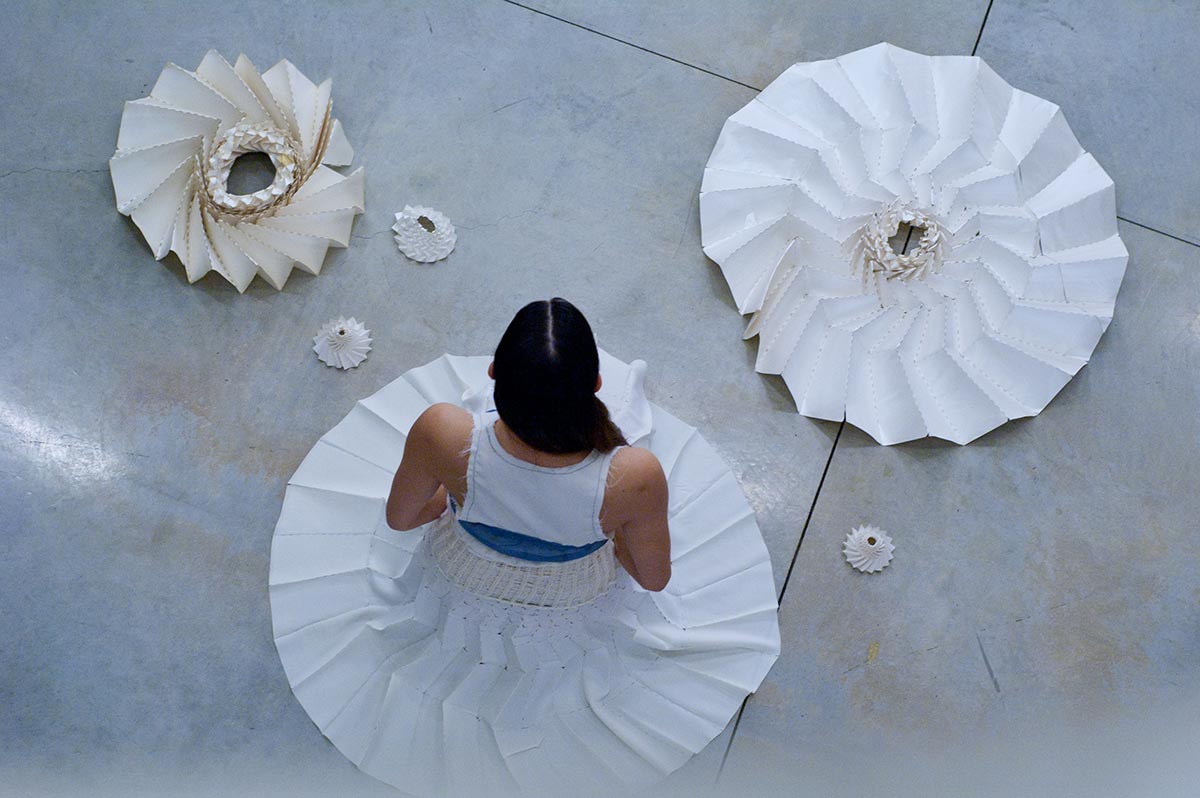In fashion, origami turns function into form
By Anne Ju

A skirt with zigzagging, billowing crease lines, set to appear on the runway of an international fashion show, hides Cornell science in its folds.
Part of a Cornell alumna's clothing line debuting at Vancouver Fashion Week, Sept. 28-Oct. 4, the skirt's design was directly inspired by Cornell physics research on using origami to tailor the mechanical properties of materials.
The “Fibonacci skirt” is part of the spring/summer collection of VOGEL, a brand launched by Lea Freni '15, a graduate of the Department of Fiber Science & Apparel Design in the College of Human Ecology.
A designer drawn to mathematical elements and clean lines in her creations, Freni teamed with Uyen Nguyen, a research associate in the lab of Itai Cohen, associate professor of physics, on a project to factor origami principles into fashion design. She and Nguyen worked together on the Fibonacci skirt and are collaborating on other designs for VOGEL. Nguyen and Freni have launched an Indiegogo campaign to fund their fashion week expenses.
The skirt is modeled after an origami folding pattern that was the subject of a research project by former postdoctoral associate Bin Liu, now at the University of California, Merced. Liu presented the work at the American Physical Society earlier this year. Using paper models, Liu studied the mechanics of a particular fold, describing it as a circular miura-ori (a popular origami fold).
When squeezed, the origami “doughnut” compresses but remains strong, and the center circle never changes size. This unusual behavior, based entirely on the folding pattern, possibly could be used in machines, or to give structural integrity to materials, Liu said.
Turns out it's also a good fashion trick, Nguyen said. It gives the designer the ability to change the silhouette of a garment but have the waist measurement remain the same.
“This enables you to compress the outer perimeter of the skirt, as the inner perimeter stays the same,” Nguyen said.
The way the designers spaced the folding is based on the Fibonacci sequence, a famous, self-similar number series. The sequence, besides just being “cool,” shows up in natural forms and is visually pleasing, Freni said.
The Fibonacci skirt is made of polyester blends that can be laser cut, folded and heat set for the skirt's specific origami functionality.
Media Contact
Get Cornell news delivered right to your inbox.
Subscribe